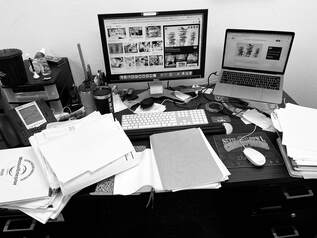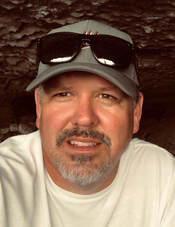Bridging Leadership Lessons from the Workplace and Those Experiences Shaping Today's Youth and Tomorrow's Leaders
 How many times do you sit at your desk, stare at your growing list of emails and action items on your bullet journal and throw your hands up in the air in frustration? You wonder how in the world are you going to find time to get it all done. Then, how many times do you look around at other people and wonder what the heck they are doing? How do they find time to stand in the break room and chat about the Cardinals game or the latest episode of the Voice? Why are they not as busy as I am? But is that really the case? Stephen M.R. Covey says we tend to “judge ourselves by our intentions and others by their actions.” I feel that this quote perfectly sums up the paragraph above. The justifications we use to validate our own beliefs and actions have a tendency to bias our perspective and distort our reality. You see it put into practice when you casually ask someone how their day is going and they proceed to talk about how busy they are and as they attempt to describe in detail the craziness that is their life, you can tell by their approach that even though they are speaking they are thinking that you cannot fathom how busy they actually are and they may even say that directly. In my early days of managing Customer Service and Applications, I noticed a trend of team members coming to me and describing how busy they were. Inevitably, most everyone of them would proceed to identify someone else - possibly in the group but many times outside the group - as an example of someone who clearly wasn’t as busy. As if they can prove their position by pointing out the opposite in someone else. As a first-time manager, I was very empathetic to their plight and would provide sympathetic responses which essentially added fuel to their frustration. Gradually, I started taking the same stance with my boss. Looking at my and my team’s workload, I caught myself complaining about how busy we were and then would talk about other groups who were clearly coasting. I kept it up until my immediate boss, who became a close friend, called me out. He asked for details. What was specifically taking up so much time? Why am I spending time worrying about other groups? How much time and energy did I spend complaining? After initially getting a little defensive and offended that he couldn’t grasp my workload, I began to think about what he said, and the self-reflection really hit home. That is exactly what I needed for a moment of clarity. My friend demonstrated the Courage to Challenge (1st Pillar of Impact) and helped me reassess my situation and I began looking for solutions instead of excuses. I spent time with my team members and worked through their issues as well. I described to them a situation that helped paint a picture of what we were experiencing. I explained that I’m sitting at my desk, and I look at the piles of paper and stacks of file folders (we didn’t have knowledge management software back in the day!). From where I sit, obviously I am extremely busy. I am overloaded with work because, well, just look at my desk! I am looking at everyone else, from behind my desk that is piled high with work. Meanwhile, someone else is sitting at their very own desk, with their very own stack of papers and work. They also are frustrated and wondering why nobody else is as busy as them. They don’t see my pile of work because they are sitting at their desk, behind their piles, looking from their perspective. That was my first transformational experience in management that has since become a lifelong journey of growth and improvement. It was one of my first times in management that reflection and engagement of others led to changes in processes and behaviors. It’s easy to focus on the piles in your life and stay stuck behind your desk and all the biases that are stored there. WE must recognize when the piles are just distractions and excuses that are keeping us from moving forward, from reaching our potential. We need to get out from behind our desk, or as the Outward Mindset describes, get out of our box, and view the work and values of others. This gets us away from the desk of the past and to a pathway that goes Beyond Today.
0 Comments
Leave a Reply. |
AuthorTom Brown - a husband and a father who is simply trying to make a difference. Using my experience as a Manufacturing Executive to connect leadership from the boardroom to the hardwood to help teams grow and develop to make a difference in the lives of others. Archives
April 2024
Categories |
Proudly powered by Weebly

 RSS Feed
RSS Feed

